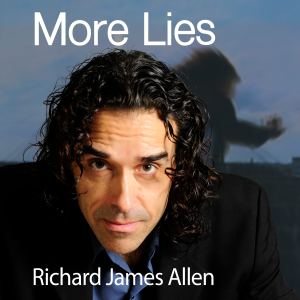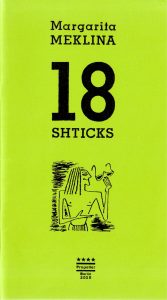In an endearing way to try and control the more uncontrollable aspects of her life, Sadie has a habit of reducing things to lists. These often take the form of Desert Island Top 5s. This extends to relationships, films, books, places to visit (and even to Lovat’s acknowledgements). But not everything is reducible to a list and not all of the lists are static. However, the lists do make good structuring devices, and add to the ease and charm of Big Feelings, a book full of big feelings but also ease and charm.
A review of The Haunting by Cate Peebles
 When working on a collection that relies so heavily on intertextuality, less is often more. The Haunting draws upon over twenty different pieces of media, ranging from nineteenth century novels to contemporary horror films. While many of these allusions feel at home, the sheer volume an at times feel overwhelming. Peebles’ ambition to capture the full spectrum of what it means to be haunted is admirable, but sometimes, attempting to encompass every possible reference dilutes the potency of the haunting itself.
When working on a collection that relies so heavily on intertextuality, less is often more. The Haunting draws upon over twenty different pieces of media, ranging from nineteenth century novels to contemporary horror films. While many of these allusions feel at home, the sheer volume an at times feel overwhelming. Peebles’ ambition to capture the full spectrum of what it means to be haunted is admirable, but sometimes, attempting to encompass every possible reference dilutes the potency of the haunting itself.
Poetry for the Looming Past: A review of House of Jars by Hester L. Furey
 I must admit that when I encountered this text for the first time, I was flung far out of my realm. House of Jars is brilliant in so many ways, and though I have long been an intimate friend of poetry, I was at first daunted by the intellectual challenges that this work presented. The opportunity to explore this work served doubly as another step forward along my academic journey, and once I learned to speak its language, I found House of Jars to be a delightfully rewarding challenge, to which I hope I rose valiantly.
I must admit that when I encountered this text for the first time, I was flung far out of my realm. House of Jars is brilliant in so many ways, and though I have long been an intimate friend of poetry, I was at first daunted by the intellectual challenges that this work presented. The opportunity to explore this work served doubly as another step forward along my academic journey, and once I learned to speak its language, I found House of Jars to be a delightfully rewarding challenge, to which I hope I rose valiantly.
A review of More Lies (audiobook version) by Richard James Allen
 Because I also enjoy listening to audio, a medium that is able to fit in spaces where books might not, for example, while driving, I was delighted to hear that More Lies has just been released in an audio version. The audiobook, narrated by Allen himself, utilises his terrific acting ability in order to really draw out some of those themes. The narration is by turns wry, ironic, even slapstick at times, but always engaging.
Because I also enjoy listening to audio, a medium that is able to fit in spaces where books might not, for example, while driving, I was delighted to hear that More Lies has just been released in an audio version. The audiobook, narrated by Allen himself, utilises his terrific acting ability in order to really draw out some of those themes. The narration is by turns wry, ironic, even slapstick at times, but always engaging.
A review of The Intersection of Poetry and Jungian Analysis Through Metaphor by Regina Colonia-Willner
 The connection between poetry and Jungian analysis is clearly presented; however, a reader would be justified in coming away from this book with two ideas: that the book is aimed more at psychoanalysts, not poets, despite the extensive references to poets’ thoughts and citations from their work, and that the link between poetry and Jungian analysis is less a link and more a continuous flow, as they infuse each other.
The connection between poetry and Jungian analysis is clearly presented; however, a reader would be justified in coming away from this book with two ideas: that the book is aimed more at psychoanalysts, not poets, despite the extensive references to poets’ thoughts and citations from their work, and that the link between poetry and Jungian analysis is less a link and more a continuous flow, as they infuse each other.
A review of The Hole in Your Life by Bob Rich
 Bob Rich is an expert on the subject. He has been a psychotherapist for over 30 years, both in a clinical practice and through extensive volunteering of his services in multiple forums. He also has firsthand experience of the most intense kind of grief, having recenly experienced the loss of his own daughter Natalie to liver cancer in December 2024. The Hole in Your Life, Rich’s 20th book, is dedicated to Natalie and draws heavily on both personal experience and Rich’s extensive clinical understanding of the many pathways grief can take.
Bob Rich is an expert on the subject. He has been a psychotherapist for over 30 years, both in a clinical practice and through extensive volunteering of his services in multiple forums. He also has firsthand experience of the most intense kind of grief, having recenly experienced the loss of his own daughter Natalie to liver cancer in December 2024. The Hole in Your Life, Rich’s 20th book, is dedicated to Natalie and draws heavily on both personal experience and Rich’s extensive clinical understanding of the many pathways grief can take.
A review of The Foal in the Wire by Robbie Coburn
 Coburn’s language moves fluidly between straightforward prose to soaring poetic imagery, particularly around the central character, the foal. Sam learns to make new meaning in a harsh environment, which is beyond alcohol, blame, and violence; finding communication and care is a purer way to relate to the world. Coburn’s verse novel is a beautifully written and visceral bildungsroman, which speaks like a scared whisper from broken men in rural settings; about men trying to learn how to nurture others, and in turn nurture themselves.
Coburn’s language moves fluidly between straightforward prose to soaring poetic imagery, particularly around the central character, the foal. Sam learns to make new meaning in a harsh environment, which is beyond alcohol, blame, and violence; finding communication and care is a purer way to relate to the world. Coburn’s verse novel is a beautifully written and visceral bildungsroman, which speaks like a scared whisper from broken men in rural settings; about men trying to learn how to nurture others, and in turn nurture themselves.
A review of 18 Shticks by Margarita Meklina
 At forty-five pages, 18 Shticks isn’t a long collection, but it covers a lot of ground. Individually these are stories of ordinary lives made surreal through life’s twists, through close examination, and through a sense that just beneath the surface of any situation, there is another reality simmering.
At forty-five pages, 18 Shticks isn’t a long collection, but it covers a lot of ground. Individually these are stories of ordinary lives made surreal through life’s twists, through close examination, and through a sense that just beneath the surface of any situation, there is another reality simmering.
A review of It All Felt Impossible: 42 Years in 42 Essays, by Tom McAllister
 There’s something special about finding within a book ourselves, to see pieces of us reflected back to us on a page; there’s something special, too, about getting a peek into a world that feels far removed from our every day, about an escape that teaches us something about someone fully unlike ourselves. For me, Impossible bridged this line between selfishness and empathy, between the joy at shared experience and the curiosity at learning about someone who’s nothing like I am.
There’s something special about finding within a book ourselves, to see pieces of us reflected back to us on a page; there’s something special, too, about getting a peek into a world that feels far removed from our every day, about an escape that teaches us something about someone fully unlike ourselves. For me, Impossible bridged this line between selfishness and empathy, between the joy at shared experience and the curiosity at learning about someone who’s nothing like I am.
A review of Fragmentation and Volta by Paul Ilechko
 The collection may end with the word “home” but that word is followed by an ellipsis, that punctuation mark which means that something has been left out. Here at the end, it alludes not only to the contents being fragmentary but to the whole collection itself being a fragment. The book itself is a border, a liminal space inviting everything unsaid to gather around it.
The collection may end with the word “home” but that word is followed by an ellipsis, that punctuation mark which means that something has been left out. Here at the end, it alludes not only to the contents being fragmentary but to the whole collection itself being a fragment. The book itself is a border, a liminal space inviting everything unsaid to gather around it.